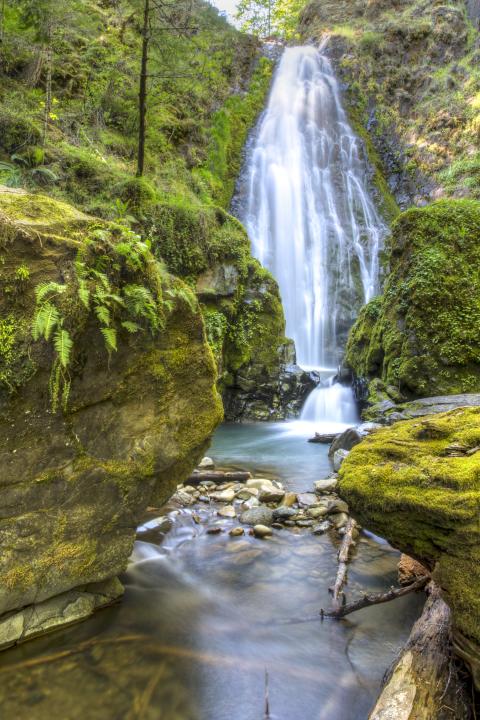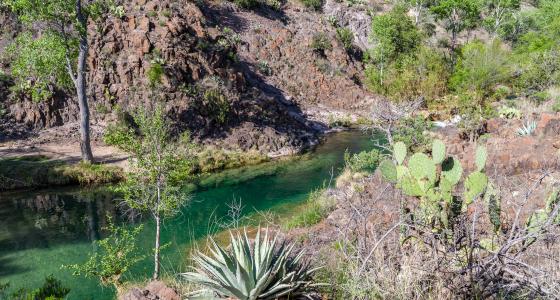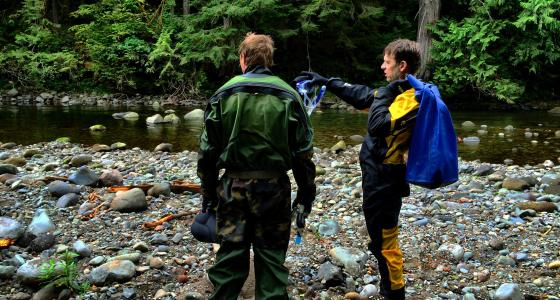Water quality. Without high-quality water, many of the “outstandingly remarkable values” for which rivers are protected in the National Wild & Scenic Rivers System wouldn’t exist. In fact, for at least 30 rivers in the National System, water quality itself is an ORV. Managing the river to protect, and even enhance, water quality can be a complex, often difficult, undertaking, though. Water quality issues often are dependent on events far beyond the river corridor and are frequently entwined with social, political, and economic interests.
While an early paper provided important information, developing additional guidance to river managers to address water quality has taken several years to develop; we’re pleased to announce the release of Water Quality Management for Wild and Scenic Rivers, a new technical report of the Interagency Wild & Scenic Rivers Council.
Excerpt: Water quality protection is a fundamental reason for the establishment of the National Wild and Scenic Rivers System. River managers, state, and federal water pollution control agencies, and other federal agencies or departments with jurisdiction over lands adjacent to or bordering a wild and scenic river, have a statutory responsibility to protect the water quality of [that river]. Water quality protection focuses on maintaining existing water quality, while enhancement includes water quality improvement or restoration to conditions better than those that existed at the time of designation, when and where feasible.
As for all our papers, we invite you to send us comments, suggests, and future needs. You can reach us at [email protected].
Cover Photo: Chetco River (Oregon), where water quality of a remarkable value. Photo courtesy of Zachary Collier, Northwest Rafting Company.
Photo on right: Susan Falls, just above the North Umpqua River (Oregon), which also has remarkable water quality. Photo courtesy of Bob Wick, Bureau of Land Management.




